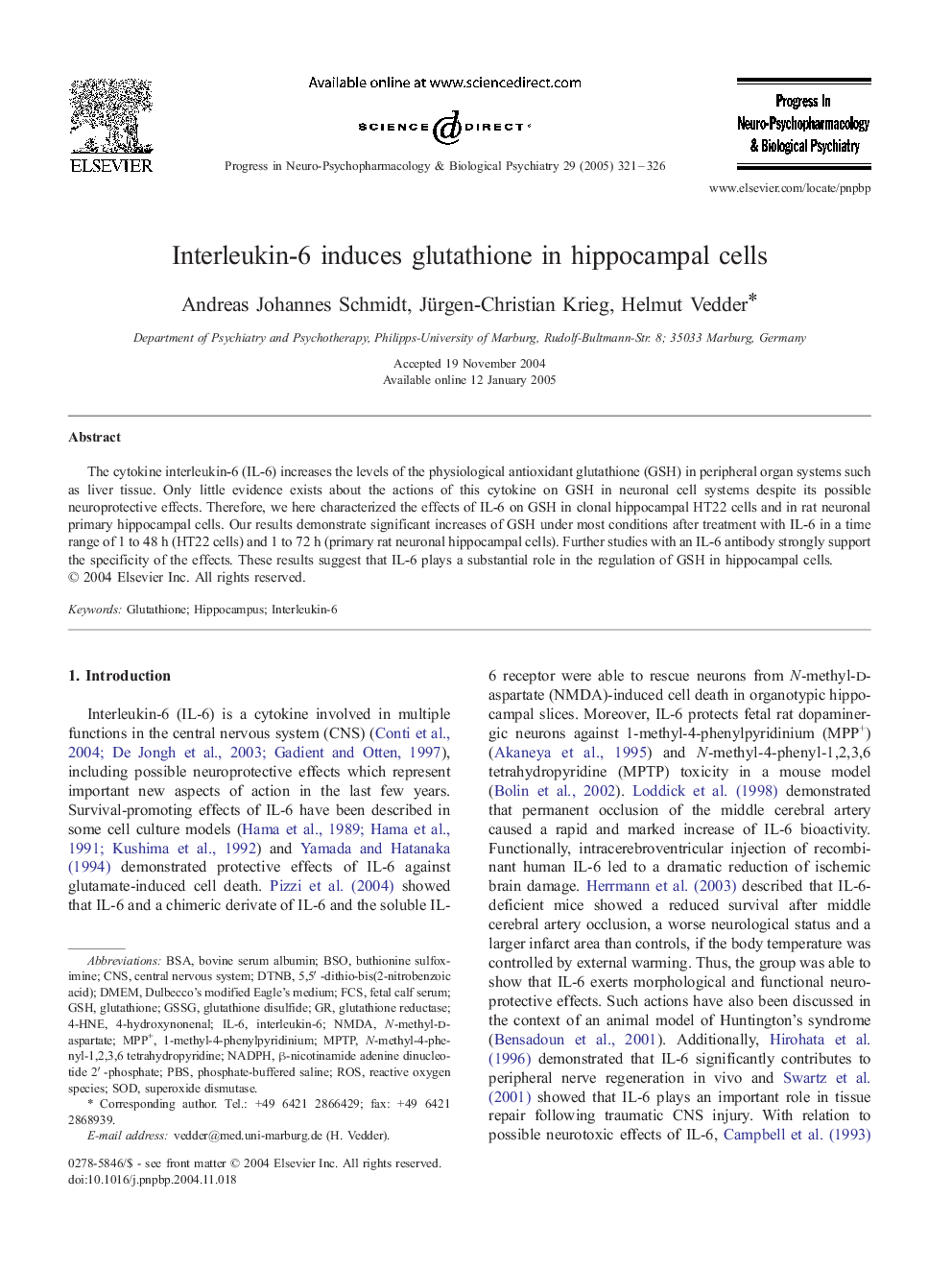| Article ID | Journal | Published Year | Pages | File Type |
|---|---|---|---|---|
| 9016478 | Progress in Neuro-Psychopharmacology and Biological Psychiatry | 2005 | 6 Pages |
Abstract
The cytokine interleukin-6 (IL-6) increases the levels of the physiological antioxidant glutathione (GSH) in peripheral organ systems such as liver tissue. Only little evidence exists about the actions of this cytokine on GSH in neuronal cell systems despite its possible neuroprotective effects. Therefore, we here characterized the effects of IL-6 on GSH in clonal hippocampal HT22 cells and in rat neuronal primary hippocampal cells. Our results demonstrate significant increases of GSH under most conditions after treatment with IL-6 in a time range of 1 to 48 h (HT22 cells) and 1 to 72 h (primary rat neuronal hippocampal cells). Further studies with an IL-6 antibody strongly support the specificity of the effects. These results suggest that IL-6 plays a substantial role in the regulation of GSH in hippocampal cells.
Keywords
PBSβ-nicotinamide adenine dinucleotide 2′-phosphateBSO1-methyl-4-phenylpyridiniumN-methyl-d-aspartateNMDAFCSMPTPDTNBGSSGGSHNADPHIL-6DMEM4-HNE4-hydroxynonenal5,5′-dithio-bis(2-nitrobenzoic acid)BSADulbecco's modified Eagle's mediumMPP+ROSbovine serum albumininterleukin-6buthionine sulfoximineCNSSODfetal calf serumSuperoxide dismutasecentral nervous systemPhosphate-buffered salineHippocampusGlutathioneglutathione disulfideglutathione reductaseReactive oxygen species
Related Topics
Life Sciences
Neuroscience
Biological Psychiatry
Authors
Andreas Johannes Schmidt, Jürgen-Christian Krieg, Helmut Vedder,
